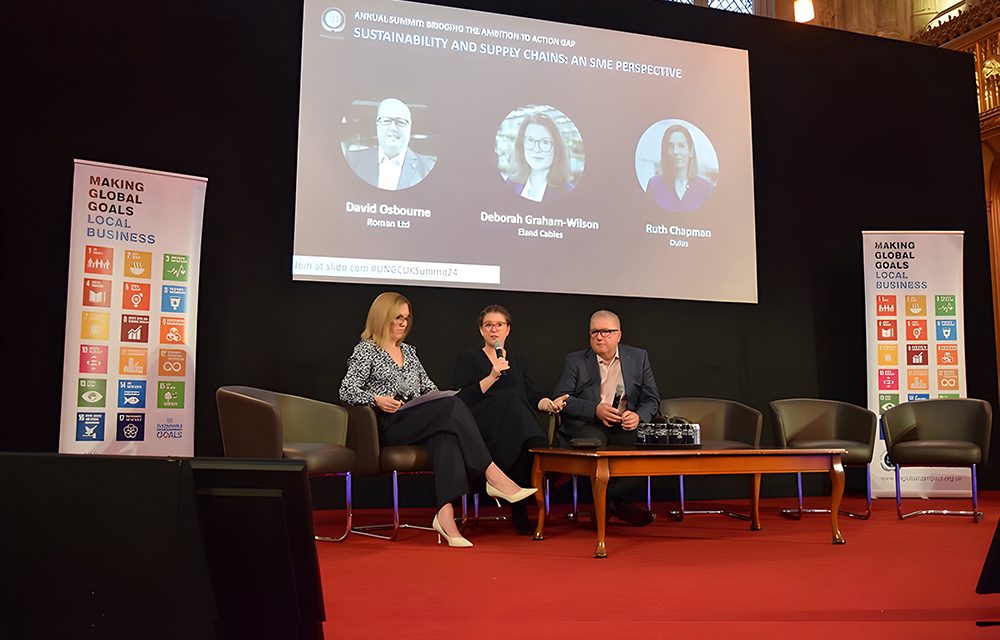Last Tuesday, Roman CEO David Osborne participated in a panel at the United Nations Global Compact Annual Summit, held at the historic London Guildhall. This prestigious event brought together leaders and change-makers from a wide array of industries to discuss and share ideas on how to accelerate progress towards collective sustainability goals. The summit featured thought-provoking discussions, focusing on how businesses can contribute to addressing critical global issues like climate change, inequality, and responsible supply chains.
As the world approaches the midpoint of the UN’s ‘Decade of Action’, there is an urgent need to deliver on sustainability commitments to avoid the worst impacts of environmental degradation and societal inequality. Despite ongoing efforts, progress remains too slow and, in some areas, it has even begun to reverse. This reality heightens the need for business professionals to be both equipped and empowered with innovative and effective solutions to navigate the complexities ahead.
The summit was packed with dynamic and meaningful conversations, ranging from panel discussions to fireside chats, hands-on workshops, and networking opportunities. The emphasis was on offering strategic, output-oriented insights that could help bridge the gap between ambition and action. Business leaders, policymakers, and sustainability advocates, were able to connect and collaborate, focusing on real-world applications and tangible strategies for creating sustainable and resilient business practices.
During one of the key sessions, David Osborne joined Ruth Chapman from Dulas and Deborah Graham-Wilson from Eland Cables. The discussion centred on the pressures that companies, particularly SMEs, face in balancing customer expectations, regulatory requirements, and sustainability initiatives. David and Deborah shared their personal experiences of juggling these demands, especially when navigating the complexities of supply chain sustainability and reporting. They provided an honest look into the challenges of managing everyday business needs while meeting growing sustainability targets.
Their discussion deeply resonated with attendees, many of whom are also dealing with similar challenges in their respective industries. By sharing real-world examples and practical advice, David and his co-panellists helped foster a greater understanding of how to align business strategies with broader environmental and social objectives.
David commented that “It was a great honour to be involved – and in such a wonderful setting. Very clearly, lots for all of us to do to achieve the change required.”
Roman at UN Summit









